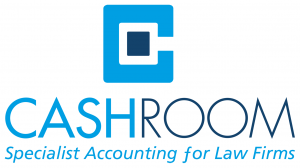Value Based Pricing V The Billable Hour
What Law Firms should consider when assessing their pricing model
One of the changes facing law firms today is the exploration of value-based pricing as an alternative to the traditional billable hour model. While the billable hour has long been the norm, there is growing interest in how value-based pricing might better serve both firms and their clients.
Alignment of Interests: Value-based pricing aims to align the interests of the law firm and client more closely. The billable hour model can sometimes incentivise firms to spend more time on a case, which may lead to inefficiency or poor time management. In contrast, value-based pricing emphasises the results and value delivered to the client, potentially encouraging firms to work more efficiently. However, the billable hour model remains straightforward and familiar, providing a clear metric for tracking work and effort. Both models offer distinct ways of fostering trust and satisfaction, depending on how they are implemented.
Predictability and Transparency: Clients today increasingly demand predictability and transparency in their legal expenses. The billable hour model can create uncertainty, as final costs are not known until after the work is completed. Value-based pricing offers an upfront cost structure, which can help clients budget more effectively. However, some clients may appreciate the flexibility of the billable hours, which can adjust to changes in the scope of work. Each pricing model offers different levels of predictability, depending on the legal work involved.
Client Relationships: Adopting value-based pricing has the potential to enhance client relationships by focusing on the client’s business objectives and desired outcomes. This approach can demonstrate a law firm’s commitment to delivering results that matter to the client, which may foster stronger, longer-lasting relationships. On the other hand, the billable hour model can also build solid relationships by providing transparency in how time is spent and allowing clients to see the detailed effort involved in their cases. Both models can contribute to client satisfaction and loyalty, depending on the clients’ preferences and expectations.
providing transparency in how time is spent and allowing clients to see the detailed effort involved in their cases. Both models can contribute to client satisfaction and loyalty, depending on the clients’ preferences and expectations.
Efficiency and Innovation: Value-based pricing may encourage law firms to become more efficient and innovative, as they are not constrained by hourly billing. This could lead to the adoption of new technologies and methodologies that streamline processes and improve outcomes. However, the billable hour model also has its advantages, particularly in complex cases where the amount of work required can be unpredictable. The choice between these models may depend on the specific needs of the firm and the case at hand.
Competitive Advantage: In a competitive legal market, what the client wants is crucial. Law firms that offer value-based pricing may attract clients who are looking for a clearer alignment of costs with outcomes. This can be a compelling selling point, especially for clients who are dissatisfied with the unpredictability of hourly billing. However, the billable hour model continues to be a standard across the industry, and many clients and firms are comfortable with its transparency and flexibility. The competitive advantage may vary depending on the firm’s target market and the nature of the legal work.
Rewarding Expertise and Results: Value-based pricing allows law firms to be rewarded based on the results they achieve rather than the time spent. This  can be beneficial for firms that consistently deliver high-quality outcomes. However, the billable hour model also rewards expertise by reflecting the time and effort required for complex and challenging cases. The appropriate pricing model may depend on the type of work and the firm’s strategy for demonstrating value to clients.
can be beneficial for firms that consistently deliver high-quality outcomes. However, the billable hour model also rewards expertise by reflecting the time and effort required for complex and challenging cases. The appropriate pricing model may depend on the type of work and the firm’s strategy for demonstrating value to clients.
Work-Life Balance for Lawyers: The billable hour model can lead to long hours and burnout as attorneys strive to meet high billing targets. Value-based pricing has the potential to contribute to a healthier work-life balance by focusing on results rather than hours worked. However, the transition to value-based pricing may present challenges for firms accustomed to the predictability and structure of hourly billing. The impact on work-life balance will depend on how effectively firms can manage the shift and maintain a sustainable workload for their lawyers.
The legal profession is at a crossroads, with the potential to redefine how it delivers and charges for services. Value-based pricing offers a forward-thinking approach that may benefit both law firms and their clients in specific contexts. However, the billable hour model remains tried and tested and a valuable tool for many firms, providing a familiar and transparent way to measure and bill for work. The decision to adopt value-based pricing, either partially or entirely, will depend on the specific needs and goals of the firm and its clients. Both models have their advantages and challenges, and the choice between them should be carefully considered to ensure the best outcomes for all parties involved.
Get in touch to arrange a confidential chat with a member of our team.
P: 01695 550950
About Cashroom
 Cashroom provides expert outsourced accounting services for Law Firms including Legal Cashiering, Management Accounts and Payroll services. Our mission is to free lawyers from the complexities of legal accounting by supporting the industry with accurate management information and allowing lawyers to do what they do best – practice law.
Cashroom provides expert outsourced accounting services for Law Firms including Legal Cashiering, Management Accounts and Payroll services. Our mission is to free lawyers from the complexities of legal accounting by supporting the industry with accurate management information and allowing lawyers to do what they do best – practice law.
‘The Cashroom have been an integral part of MBM from their inception. They has supported the growth of MBM from a small firm of 15 people all the way to the 70+ partners and staff now working in the firm. I have first hand experience of the wealth of skill employed within the business and the cashiering knowledge is unrivalled. The fluid ability of Cashroom to adapt to the changing requirements of a firm on a daily basis, as well as the ability to cover holiday periods seamlessly would be a benefit to any law firm. The Cashroom portal provides a first class workflow system for all cashiering requests and, more importantly, provides the level of security that email instructions do not. Cashroom provide both a cost effective fully outsourced service that can deliver almost everything that an internal finance team would be charged with, as well as a wraparound service to support an internal finance team.’

